Egypt, the land of pharaohs, pyramids, and the eternal Nile, is a destination that stirs the imagination like few others. Whether you are drawn by the grandeur of ancient monuments, the mystique of desert landscapes, or the bustling energy of Cairo’s souks and mosques, Egypt offers an array of experiences both profound and awe-inspiring.
I had the opportunity to go to Egypt on a solo trip in 2022, and I had an incredible experience. So here is a comprehensive guide for you, covering everything from must-see destinations and ethical accommodations to common phrases and holidays.
Egypt at a glance
Electricity & Plugs
- Plug type: Type C and Type F (European standard)
- Voltage: 220V
- Bring a universal adapter and a voltage converter if your devices don’t support 220V.
Best Time to Visit
- October to April: The most comfortable months, with cooler weather ideal for sightseeing.
- December to February: Peak tourist season; book accommodations early.
- May to September: Very hot, especially in Upper Egypt (Luxor, Aswan), but quieter and cheaper.
Currency & Money
- Currency: Egyptian Pound (EGP or LE)
- ATMs: Widely available in cities; carry some cash for small vendors.
- Tipping (Baksheesh): Common in Egypt; small tips for service are expected.
Language
- Official Language: Arabic
- Useful Phrases:
- Salam Alaikum – Hello/Peace be upon you
- Shukran – Thank you
- La, shukran – No, thank you
- Salam Alaikum – Hello/Peace be upon you
- English is spoken in tourist areas, but learning a few Arabic phrases is appreciated.
Other Important Info
- Time Zone: Eastern European Time (GMT+2)
- SIM Cards: Available at the airport or local shops (Vodafone, Orange, Etisalat)
- Dress Code: Modest dress is respectful, especially in rural and religious areas
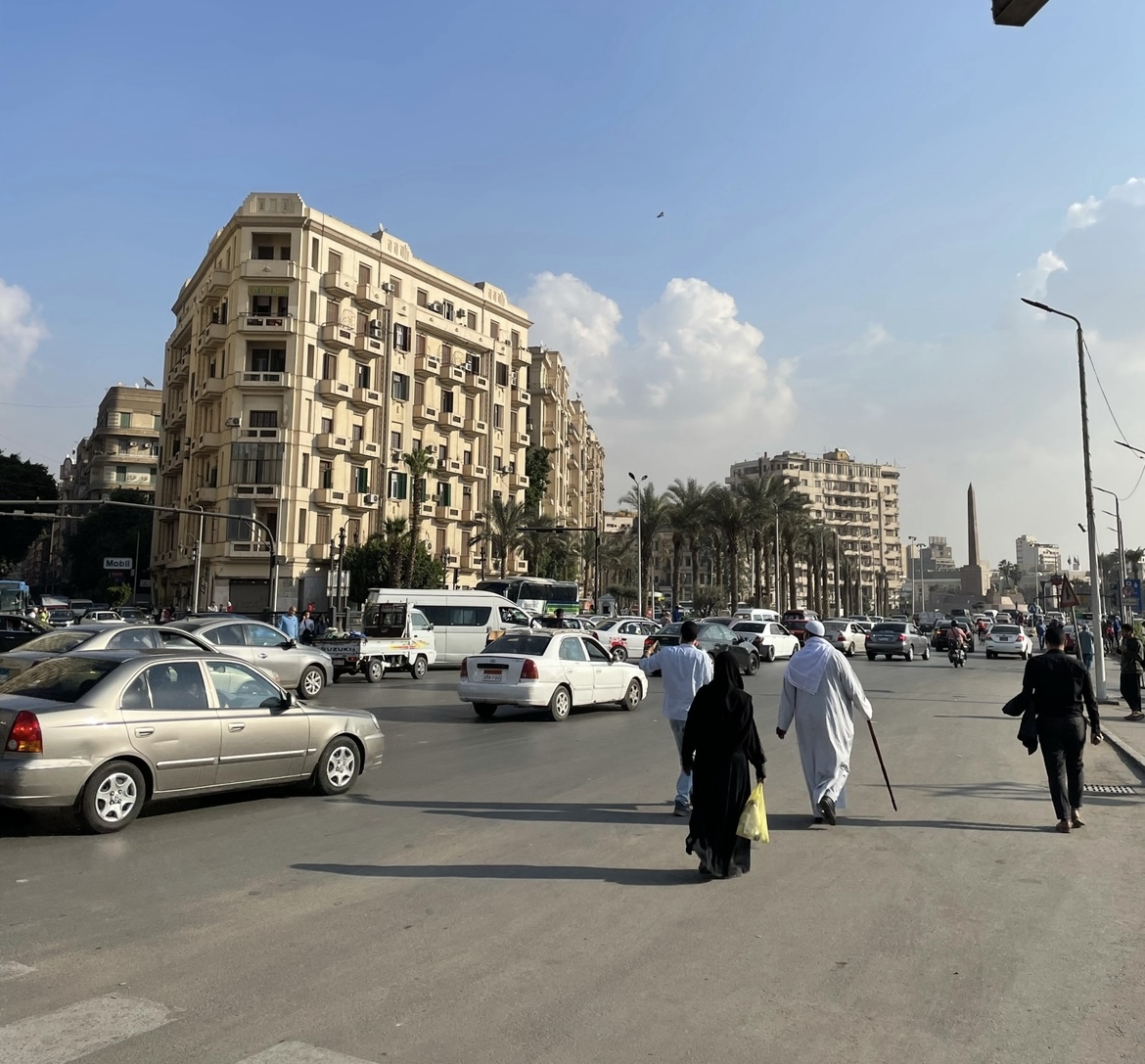
Top Destinations in Egypt
🏛️ Cairo
A chaotic, magnetic sprawl where ancient and modern collide. Home to the iconic Giza Pyramids, the Egyptian Museum, Islamic Cairo’s maze-like souqs, and a growing contemporary arts scene. Loud, alive, and unforgettable.
HOT SPOTS:
- Giza Pyramids and the Sphinx: No trip is complete without seeing these world wonders.
- Egyptian Museum: A treasure trove of antiquities, including King Tutankhamun’s golden mask.
- Khan El Khalili Bazaar: Dive into Cairo’s market culture with spices, perfumes, and antiques.
- Islamic Cairo: Explore ancient mosques, citadels, and Islamic art.
🌅 Luxor
Often called the “world’s greatest open-air museum,” Luxor sits on the ruins of ancient Thebes. The Valley of the Kings, Karnak Temple, and Luxor Temple make it a must-see for ancient history lovers. Ride a felucca at sunset or hot air balloon over the Nile.
HOT SPOTS:
- Valley of the Kings: Burial place of pharaohs, including Tutankhamun.
- Karnak and Luxor Temples: Majestic temples that showcase ancient Egypt’s architectural genius.
- Hot Air Balloon Ride: A breathtaking way to see the Nile Valley at sunrise.
🌊 Aswan
A laid-back Nile-side city rich in Nubian culture, colorful villages, and sun-drenched charm. Visit Philae Temple, sail to Elephantine Island, and use Aswan as a jumping-off point for Abu Simbel. Great for slowing down.
HOT SPOTS:
- Philae Temple: Dedicated to Isis, located on an island in the Nile.
- Abu Simbel: Gigantic temples carved into rock, built by Ramses II.
- Nubian Villages: Learn about Nubian culture and enjoy colorful homes.
🌴 Siwa Oasis
A mystical desert oasis near the Libyan border, steeped in Berber culture and ancient legend. Explore salt lakes, the Temple of the Oracle, and soak in natural hot springs. A surreal, off-grid escape with a timeless feel.
HOT SPOTS:
- Salt Lakes & Sand Dunes: Float effortlessly in turquoise lakes or take a 4×4 through rolling dunes.
- Temple of the Oracle: Visit the ancient site where Alexander the Great was declared son of Amun.
- Cleopatra’s Bath: Swim in a natural spring said to have been used by the queen herself.
- Eco-Lodges & Peace: Stay in clay-built homes and disconnect from the world — Siwa is slow travel at its finest.
🐠 Dahab
A bohemian beach town on the Sinai Peninsula. Popular with divers, yogis, and backpackers, Dahab offers world-class snorkeling (try the Blue Hole), windsurfing, and a chill alternative to Sharm El Sheikh. Sunset over the Red Sea hits different here.
HOT SPOTS:
- Blue Hole: A legendary dive and free-dive site with surreal depth and coral formations.
- Lagoon Windsurfing: Constant breezes make it a hotspot for windsurfing and kitesurfing.
- Chill Culture: Think fire-dancer beach cafés, yoga, and long, lazy tea sessions with Bedouins.
- The Blue Desert & Sinai Hikes: Explore colorful desert rockscapes and trek with Bedouin guides.
🏖️ Sharm El Sheikh
A glitzy resort town with luxury hotels, coral reefs, and nightlife. Ideal for scuba divers and beachgoers, but less culturally immersive than other Egyptian destinations. Gateway to Mount Sinai treks and Ras Mohammed National Park.
HOT SPOTS:
- Ras Mohammed National Park: A world-class dive site with vibrant reefs, drop-offs, and mind-blowing biodiversity.
- Naama Bay: The buzzing heart of Sharm, with beach bars, restaurants, and nightlife.
- Luxury Resorts & Spas: Pamper yourself at five-star hotels and all-inclusives (but choose ones with green certifications).
- Desert Adventures: Take a jeep or quad bike safari into the Sinai wilderness.
- Snorkeling Paradise: Even from shore, you’ll see coral, lionfish, and moray eels at Shark’s Bay or Tiran Island.
🌊 Alexandria
Egypt’s faded Mediterranean queen — breezy, poetic, and full of literary nostalgia. Walk the Corniche, visit the modern Bibliotheca Alexandrina, or explore Greco-Roman ruins and seafood spots. Think less temples, more tangled history.
HOT SPOTS:
- Bibliotheca Alexandrina: A modern tribute to the ancient library.
- Catacombs of Kom El Shoqafa: A fusion of Egyptian, Greek, and Roman design.
- Fort Qaitbey: A sea-facing fortress built on the ruins of the Lighthouse of Alexandria.
🐬 Marsa Alam
A rising star on the Red Sea coast. Quieter than Sharm or Hurghada, with untouched coral reefs, sea turtles, and dugong sightings. A paradise for eco-divers and remote beach lovers.
HOT SPOTS:
- Diving Heaven: Explore untouched coral gardens, vibrant reefs, and underwater caves — perfect for eco-conscious divers.
- Swim with Dolphins: Head to Sha’ab Samadai (Dolphin House) to snorkel alongside wild spinner dolphins.
- Sea Turtle Encounters: Spot turtles (and sometimes dugongs!) at Abu Dabbab Beach.
- Wadi El Gemal National Park: Discover Egypt’s most biodiverse coastal desert — mangroves, camels, and prehistoric rock art.
🌅 Sinai Peninsula
Sinai is a land of extremes: jagged red rock, endless sky, and desert silence. It’s also deeply sacred — believed to be the site of Mount Sinai, where Moses received the Ten Commandments. But beyond the Abrahamic mythos lies a land with deep Bedouin roots, endangered cultures, and a modern history marked by occupation, marginalization, and resilience.
🧭 Highlights:
- Mount Sinai (Jebel Musa): Trek before dawn for a dramatic sunrise over the desert.
- St. Catherine’s Monastery: A UNESCO World Heritage Site, one of the world’s oldest functioning monasteries, tucked into a dramatic granite valley.
- Desert Treks: Walk with Bedouin guides through the Colored Canyon, White Canyon, or Ein Hud.
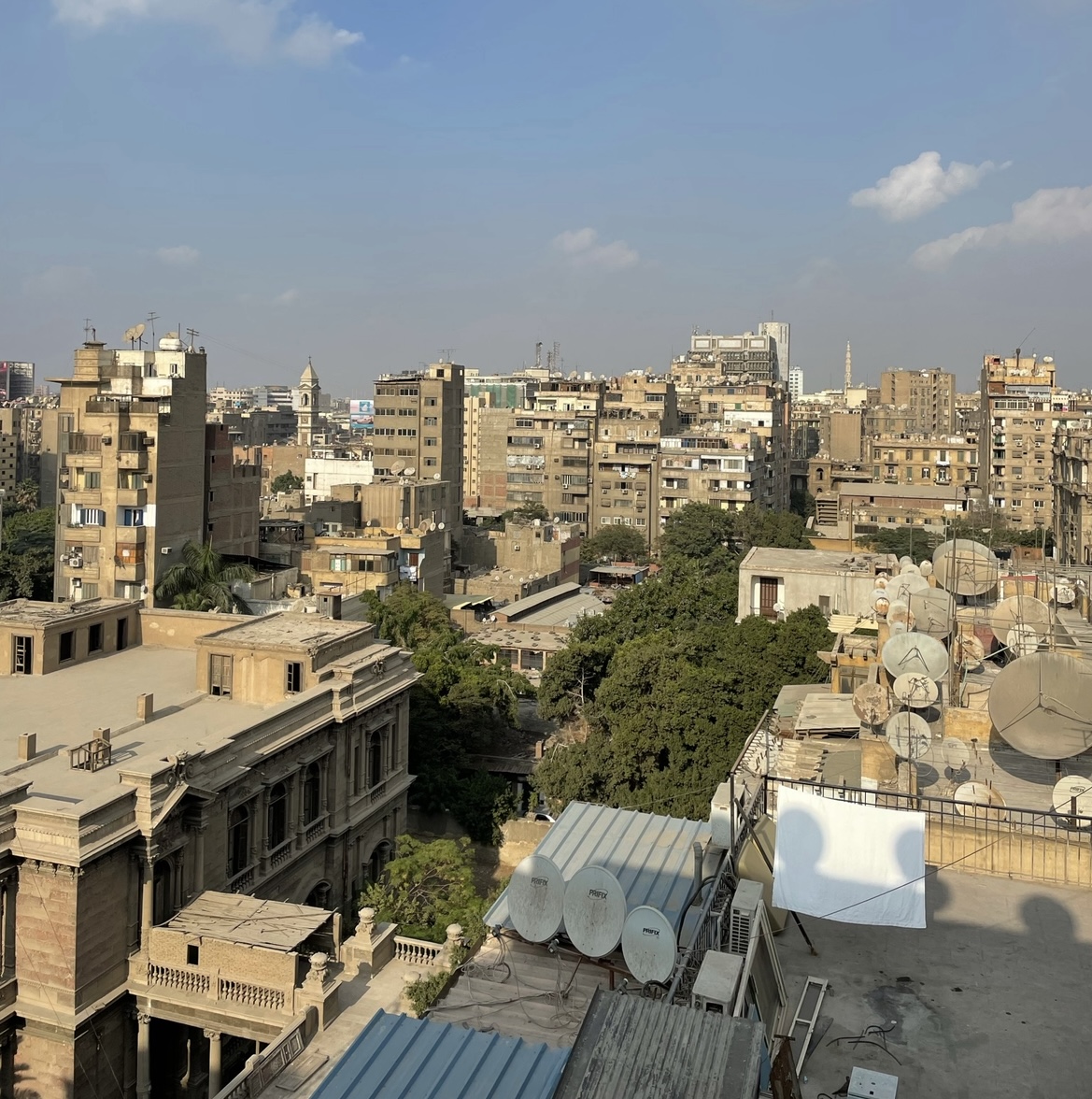
Suggested Itinerary (2 Weeks)
Day 1-3: Cairo
Explore Giza Pyramids, Sphinx, Egyptian Museum, and Islamic Cairo.
Day 4-6: Aswan
Visit Philae Temple, take a felucca ride, and day trip to Abu Simbel.
Day 7-9: Luxor
Valley of the Kings, Hatshepsut Temple, Karnak and Luxor Temples, hot air balloon ride.
Day 10-11: Red Sea (Dahab or Hurghada)
Relax, snorkel or dive.
Day 12-14: Alexandria or Sinai Peninsula
Explore historical sites or hike Mount Sinai for sunrise.
If you have less time, I recommend cutting out one or two destinations and spending longer in others.
You can also choose to book a Nile cruise, which typically span from 3 to 5 days, and offer a short and structured way to venture through ancient Egypt’s old cities.
Sailing the Nile
When booking a trip down the nile, you can generally choose between modern cruise ships with pools and buffets, or traditional dahabiyas — elegant, wind-powered sailboats that offer a slower, more intimate voyage. Dahabiyas are usually family-run, quieter, and more environmentally friendly — ideal for conscious travelers. I recommend this option.
While boat rides can feel curated, they’re also a chance to pause the pace. Sit on the deck with mint tea, watch the shifting light on the water, and let the Nile carry you down through centuries.
Recommended Local Nile Cruise Operators
- Nile Holiday Tours
- Small-group and private dahabiya cruises between Luxor and Aswan
- Focus on sustainable tourism and cultural immersion
- Local guides with deep historical knowledge
- Small-group and private dahabiya cruises between Luxor and Aswan
- Dahabiya Egypt
- Offers luxury and eco-friendly dahabiya cruises
- Emphasis on slow travel and intimate experiences on the Nile
- Supports local staff and uses sustainable practices
- Offers luxury and eco-friendly dahabiya cruises
- Sofra Nile Cruise
- Smaller traditional boats with personalized service
- Experience local Nubian culture, visit villages along the river
- Prioritize environmentally conscious tourism
- Smaller traditional boats with personalized service
- Wild Frontiers Egypt
- Responsible travel operator with Nile cruise options
- Small groups, knowledgeable guides, and local partnerships
- Blend of cultural tours and nature exploration
- Responsible travel operator with Nile cruise options
- Memphis Tours
- Well-established Egyptian company offering customizable Nile cruises
- Options for dahabiya and motorized boats
- Supports local communities and craftspeople
- Well-established Egyptian company offering customizable Nile cruises
Tips for Booking
- Choose smaller boats or dahabiyas over large cruise ships for a more authentic and eco-friendly experience.
- Confirm the company’s commitment to fair wages and environmental care.
- Look for tours that include visits to local villages and cultural experiences, not just sightseeing.
- Check recent reviews from travelers who value ethical tourism.
Ethical Travel Tips
- Cultural Sensitivity: Dress modestly, especially in rural areas and religious sites. Learn basic Arabic greetings.
- Support Local: Choose local guides, eat at local restaurants, and buy from artisans.
- Animal Welfare: Avoid camel and horse rides at tourist sites unless you confirm the animals are treated humanely.
- Environmental Responsibility: Bring a reusable water bottle, avoid single-use plastics, and be mindful of reef-safe sunscreen when snorkeling or diving.
- Respect Sacred Sites: Refrain from climbing on monuments or removing artifacts. Follow photography rules.
Safety and Health Tips
- Safety: Egypt is generally safe for tourists, especially in main tourist areas. Petty theft can occur, so stay vigilant.
- Solo Female Travelers: Exercise standard caution. Dress conservatively and consider hiring a guide for excursions. I traveled to Egypt alone and found cat-calling on the streets to be very frequent, and felt safer when covered.
- Health: Tap water is not drinkable; use bottled or filtered water.
- Travel Insurance: Consider travel insurance with medical coverage.
- Scams: Common scams include overcharging or touts pushing for tips. Be polite but firm.
- Emergency Numbers:
- Police: 122
- Tourist Police: 126
- Ambulance: 123
- Police: 122
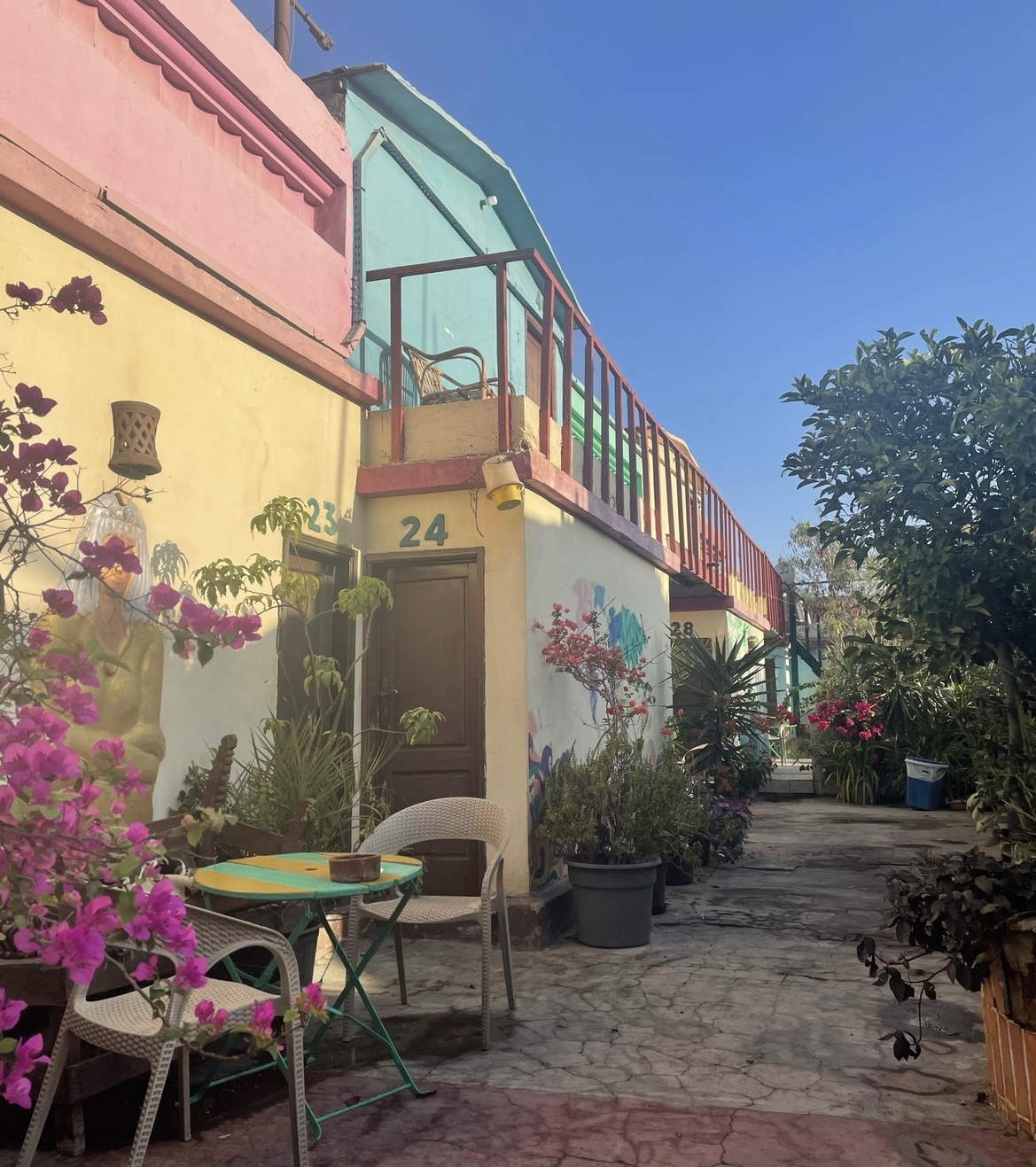
Where to Stay
Choosing where you stay while traveling through Egypt is not just about comfort and budget — it’s also a powerful political and economic decision. Your money can either reinforce exploitative systems or contribute directly to the livelihoods of Egyptians and the preservation of local culture. Here’s why supporting local accommodation matters, and how to do it mindfully.
OVERVIEW
- Cairo: Downtown for budget options; Zamalek or Garden City for upscale, quiet stays.
- Luxor: East Bank for easy access to temples; West Bank for peaceful guesthouses.
- Aswan: Nile-view hotels and Nubian guesthouses.
- Dahab: Beachside eco-lodges and dive resorts.
- Alexandria: Corniche-facing hotels.
- Sharm El Sheikh/Hurghada: Resorts or boutique hotels near the beach.
⚠️ The Problem with International Hotel Chains
- Profit Extraction
Multinational hotel chains like Hilton, Marriott, and Four Seasons often extract profits from Egypt without reinvesting in the local economy. Many are owned or franchised by foreign investors, meaning the majority of your payment leaves the country.
- Labor Exploitation
Staff at chain hotels are often underpaid and overworked. Tips are sometimes pooled or withheld, and there’s minimal opportunity for upward mobility within the company structure.
- Cultural Erasure & Homogenization
These hotels offer a sanitized, “global” luxury experience that often erases local culture. From generic decor to imported food, they cater to Western tastes at the expense of authentic Egyptian hospitality.
- Environmental Impact
Large resorts, especially along the Red Sea, can cause significant damage to coral reefs, overuse freshwater resources in desert regions, and contribute to unsustainable mass tourism.
✅ Why Choose Local & Ethical Accommodation
- Support the Local Economy
Staying at family-run guesthouses, Nubian eco-lodges, or locally owned boutique hotels ensures your money stays in Egypt — circulating within communities that actually need it. - Cultural Exchange
Local accommodations often offer richer, more intimate experiences. From home-cooked Egyptian meals to conversations with hosts about daily life and politics, it’s a chance for genuine cultural immersion. - Decolonizing Travel
Choosing local accommodation resists the colonial legacy of foreign ownership and exploitation in Egypt’s tourism industry. It’s about travel as solidarity, not consumption. - Environmental Sustainability
Many eco-lodges and small hotels use sustainable building materials, reduce waste, and are deeply attuned to their local environment — from the Siwa Oasis to the Nile Valley.
Ethical Accommodation
Cairo
- Tahrir Plaza Suites: Locally owned, near the Egyptian Museum with friendly staff and an authentic downtown vibe.
- Holy Sheet Hostel: Trendy, budget-friendly, and run by young Egyptians. Great for backpackers.
- Beit El Suheimi Area Guesthouses: Small accommodations near Islamic Cairo, sometimes run by extended families.
Luxor
- Nile House (West Bank): Locally owned with a stunning rooftop view of the Nile. Breakfasts are made from scratch.
- Villa Sunrise: Run by a friendly Luxor family, with easy access to Valley of the Kings.
- Eco Nubia (on Elephantine Island, Aswan): A beautifully constructed eco-lodge offering cultural and environmental education with direct local benefit.
Aswan
- Nubian Guesthouses in Gharb Soheil: Colorful homes turned guesthouses run by local families. Warm hospitality and home-cooked meals are a highlight.
- Bet El-Kerem Guesthouse: A quiet, ethical retreat with panoramic views of the desert and Nile, emphasizing sustainable tourism.
Dahab & Sinai
- Seven Heaven Hotel: Basic, budget-friendly, and Egyptian-run. Popular with backpackers.
- Coral Coast Hotel: Locally managed and eco-conscious. Offers yoga, diving, and reef-safe practices.
Siwa Oasis
- Adrère Amellal: A luxury eco-lodge made from salt and mudbrick — expensive but genuinely sustainable and locally managed.
- Albabinshal Lodge: Built in traditional Siwan style, with close ties to the community.
Tips for Finding Ethical Stays
- Look for direct bookings via their own websites or local platforms, rather than third-party engines that take large commissions.
- Read reviews about how the hotel treats staff and whether they’re engaged in community development.
- Check if the accommodation offers fair wages, local hiring, cultural preservation, or sustainability certifications (but don’t rely solely on greenwashing).
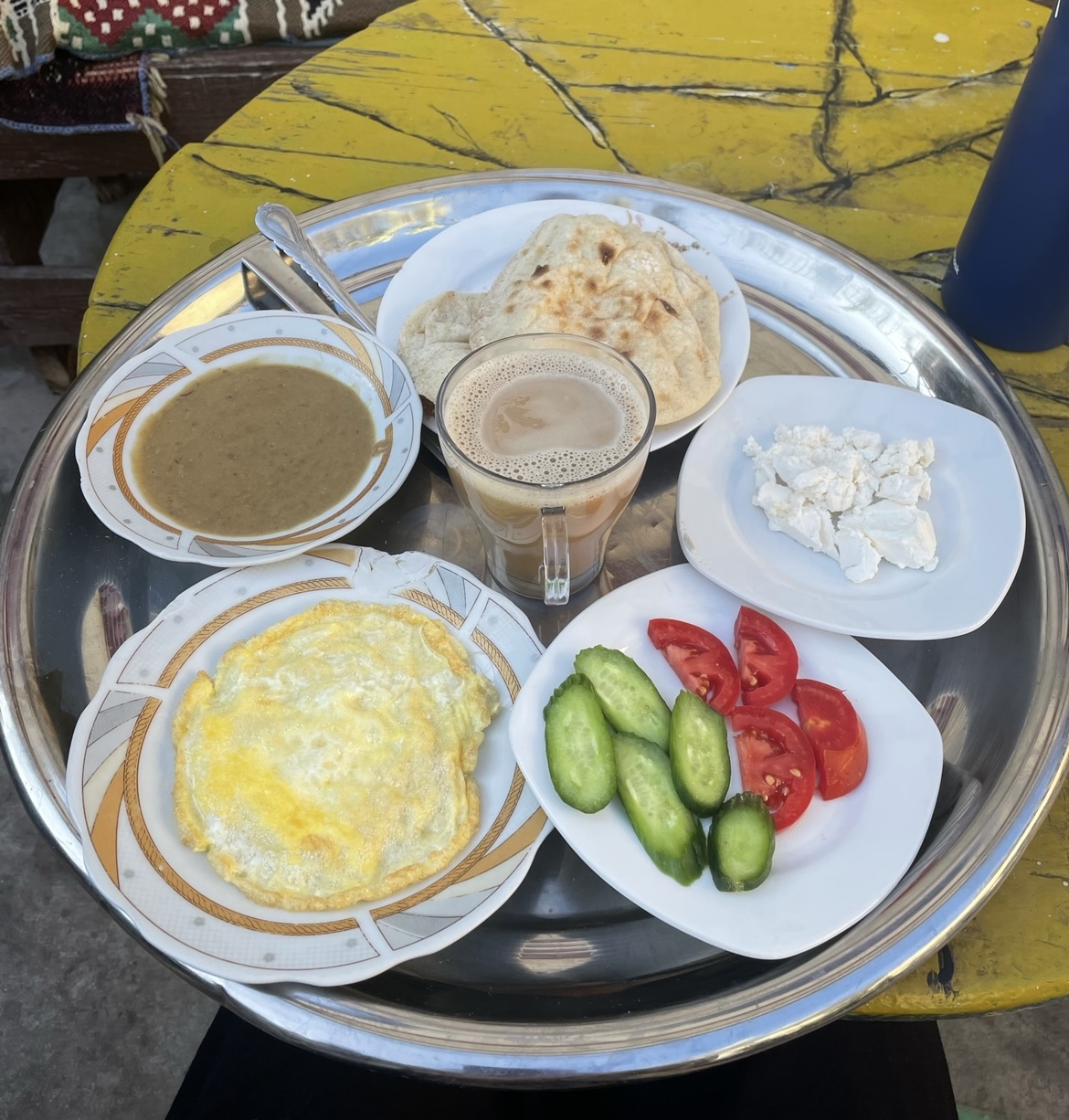
What to Eat in Egypt
Egyptian food is hearty, soulful, and layered with history. Drawing on Pharaonic, Ottoman, and Levantine influences, it’s the kind of cuisine that tells stories—of peasants and poets, of fasting and feasting, of family tables and street vendors. Whether you’re sitting down to a home-cooked meal or grabbing something on the go, here’s what you shouldn’t leave Egypt without tasting:
🥣 Koshari
Egypt’s beloved national dish — a chaotic, comforting bowl of lentils, pasta, rice, chickpeas, and crispy fried onions, topped with spicy tomato sauce and tangy vinegar.
- Where to try it: Koshary Abou Tarek (Cairo), or any busy street-side kiosk.
- Why it matters: Originally a working-class staple, it’s now a unifying comfort food across class and region.

Koshari
🧆 Ta’ameya (Egyptian Falafel)
Made with fava beans instead of chickpeas, and often green inside from fresh herbs. Crunchy outside, fluffy inside, usually served in baladi bread with pickled veggies.
- Where: Street carts in the morning, or try Felfela (Cairo).
- Tip: Ask for it with eggplant and tehina.
🍚 Ful Medames
Slow-cooked fava beans seasoned with oil, lemon, garlic, and cumin — often eaten for breakfast.
- Where: Everywhere from street stalls to hotel buffets.
- Why it matters: This dish has roots in Pharaonic times and remains a staple of daily Egyptian life.
🐟 Sayadeya (Alexandrian Fish Rice)
A coastal favorite: baked or grilled fish (often mullet or sea bass) served with spiced rice, caramelized onions, and tomato broth.
- Where: Alexandria or coastal cities like Port Said. Try a local seafood shack or mid-range restaurant.
🍖 Hawawshi
Spiced minced meat (often lamb or beef) baked inside baladi bread until crispy and aromatic. Like Egypt’s answer to a spiced meat pie.
- Where: Small butcher shops and street vendors.
🍲 Molokhia
A love-it-or-hate-it green stew made from jute leaves, often cooked with garlic and coriander in a meat or chicken broth.
- Where: Best enjoyed homemade, but restaurants like Abou El Sid serve upscale versions.
- Tip: Try it with rabbit or chicken for the full experience.
🥘 Mahshi
Vegetables (zucchini, peppers, vine leaves, or eggplants) stuffed with seasoned rice and herbs, slow-cooked in tomato sauce.
- Where: Homestyle restaurants, especially in Cairo and Luxor.
- Cultural note: Mahshi is central to family feasts and Friday meals.
🍞 Baladi Bread
The heart of Egyptian meals — a whole wheat pita baked in clay ovens. Eaten with everything.
- Ethical note: Buy from local bakeries and avoid mass-produced packaged versions.
🍮 Desserts to Try
- Om Ali: A hot, creamy bread pudding with nuts and raisins.
- Basbousa: A semolina cake soaked in syrup.
- Konafa: Crispy shredded pastry with a soft cheese or cream center.
🧋 Drinks
- Karkadeh: Hibiscus tea, tart and bright — served hot or cold.
- Sahlab: A warm milk-based drink thickened with orchid root, topped with coconut, nuts, and cinnamon.
- Sugarcane Juice (Aseer Asab): Fresh-pressed and wildly refreshing.
Ethical Eating Tips
- Support local eateries over international fast food chains.
- Tipping is expected in restaurants (10–15% is standard).
- Ask if food is prepared fresh — some tourist spots reheat.
- Vegetarians/Vegans can thrive here! Stick to ta’ameya, ful, mahshi, koshari, salads, and lentil soups.
Packing List for Egypt
Essentials
- Passport, visas, travel insurance
- Lightweight, modest clothing (linen or cotton)
- Sunhat, sunglasses, sunscreen
- Reusable water bottle with filter
- Travel scarf/shawl (for women at religious sites)
- Power adapter (Type C & F plugs)
- First-aid kit and medications
- Comfortable walking shoes
- Sandals for beach areas
- Swimwear and reef-safe sunscreen
- Copies of important documents
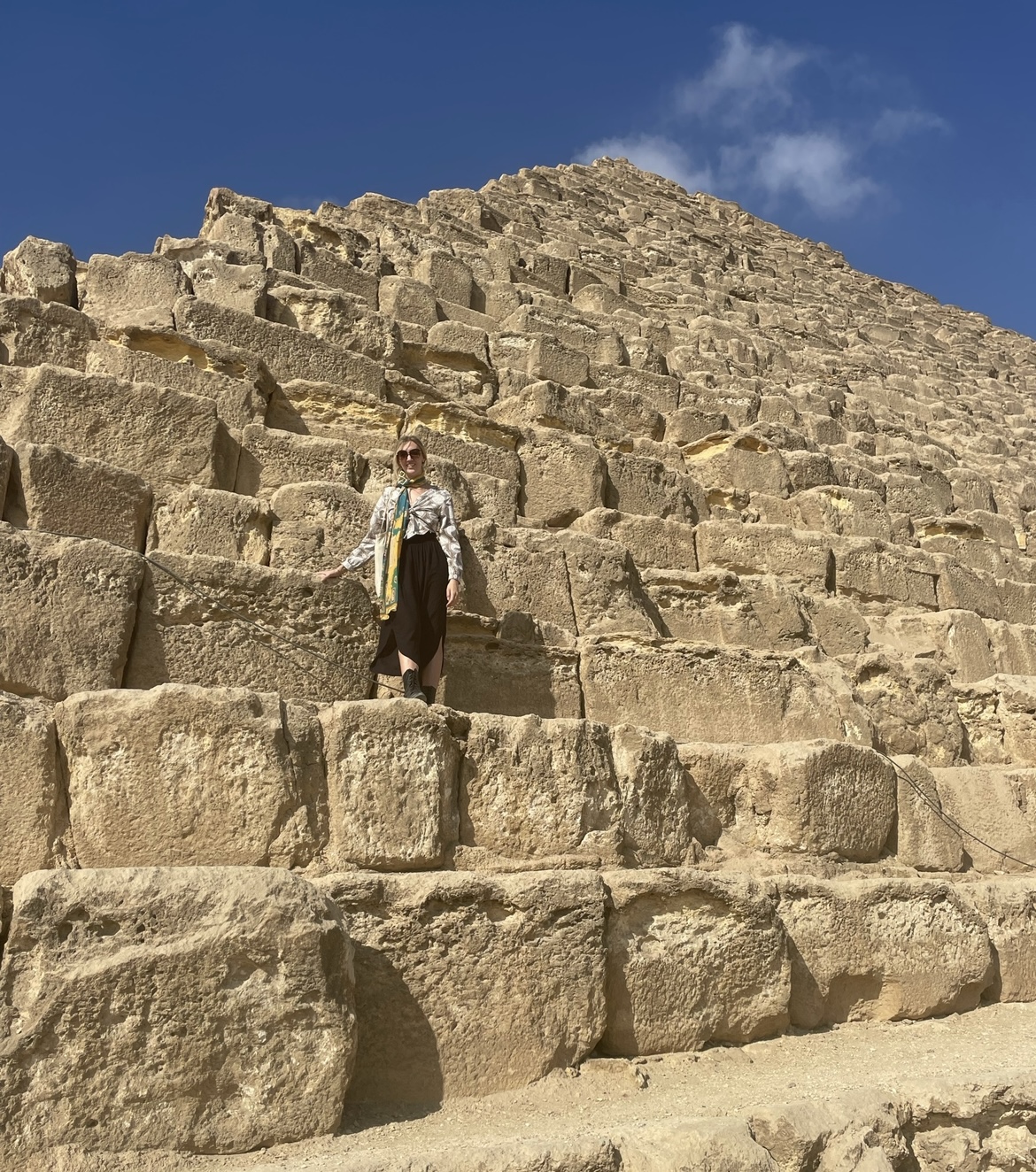
Cultural Etiquette & Social Norms
Egypt is incredibly welcoming, but it’s also a society with deep-rooted traditions, especially around gender, religion, and hospitality. A little cultural awareness goes a long way in making your trip smoother — and more meaningful.
👋 Greetings & Interactions
- Say “Salam Alaikum” (peace be upon you) when greeting someone; it’s a respectful and common way to say hello.
- A handshake is common between men, but many women (especially in conservative areas) may avoid physical contact. If in doubt, wait for the other person to initiate.
- Egyptian hospitality is generous — it’s not unusual to be offered tea, food, or help. Accepting these gestures with warmth is part of the cultural rhythm.
🧕 Dress Modestly
- Egypt is a majority-Muslim country with conservative social norms, especially outside major tourist hubs.
- Women should wear clothing that covers shoulders and knees, and a scarf is useful when visiting mosques.
- Men are generally fine in t-shirts and pants, but tank tops and shorts may be frowned upon in rural areas or religious sites.
- At the beach (especially on the Red Sea coast), swimwear is totally fine—but cover up once you leave the water.
**Read my article about what to wear in Egypt as a solo female traveler.
🕌 Religion & Sacred Spaces
- When entering a mosque, remove your shoes and dress modestly. Women should cover their hair with a scarf.
- During prayer times, some sites may close briefly or have restricted access.
- Ramadan is a holy month of fasting. Be respectful by not eating or drinking in public during daylight hours, especially in local neighborhoods.
🚫 Things to Avoid
- Public displays of affection are considered inappropriate.
- Don’t photograph people without permission — especially women, children, or soldiers/police.
- Tread carefully when discussing politics, religion, or the military, especially with strangers.
🧭 Tipping (Baksheesh)
- Tipping is a part of daily life in Egypt. Small tips (5–20 EGP) are appreciated for everything from hotel help to photo permissions.
- Sometimes baksheesh is expected, other times it’s earned — tip with intention, not pressure.
🌿 General Tips
- Be patient. Things often run on “Egyptian time.”
- Bargaining is expected in markets — do it with humor, not hostility.
- A smile and a respectful attitude will open more doors than perfect Arabic.
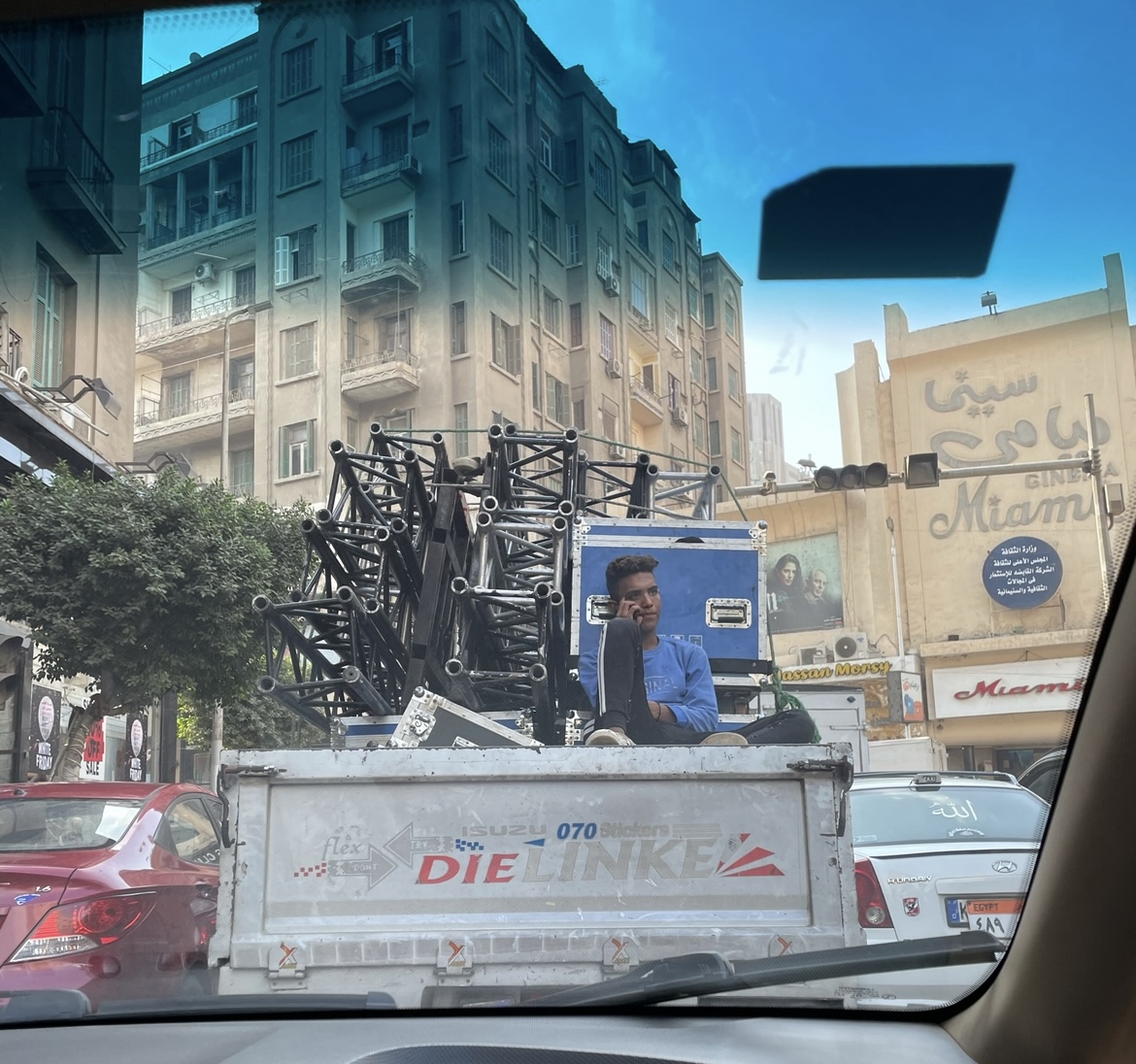
Language Essentials: Speak a Little Arabic
You don’t need to be fluent to connect with locals — just a few words of Egyptian Arabic will earn smiles, discounts, and genuine appreciation. Egyptian Arabic differs slightly from standard Arabic and is rich with personality.
💬 Common Phrases
| Arabic | Pronunciation | English |
| السلام عليكم | As-salaam ‘alaykum | Peace be upon you (Hello) |
| وعليكم السلام | Wa ‘alaykum as-salaam | Response to hello |
| شكراً | Shukran | Thank you |
| من فضلك | Min fadlak (m)/fadlik (f) | Please |
| نعم / لا | Na‘am / La’ | Yes / No |
| ما اسمك؟ | Ma ismak? (m) / ismik? (f) | What’s your name? |
| أنا من… | Ana min… | I’m from… |
| كم السعر؟ | Kam el-se‘r? | How much is it? |
| لا أفهم | La afham | I don’t understand |
| تمام | Tamaam | Great / OK / Fine |
| مع السلامة | Ma‘a as-salaama | Goodbye |
🔤 Pronunciation Tips
- “Kh” sounds like a soft, breathy h at the back of the throat (like the ch in Bach).
- The letter “q” is often pronounced as a glottal stop (like a pause or a catch in the throat).
🌟 Bonus Phrase
If someone offers you something and you don’t want it, a friendly “La, shukran” (No, thank you) and a hand on your heart goes a long way.
Scams & Tourist Traps
Egypt is incredibly welcoming — but like many high-tourism countries, it has its share of petty scams and hustles. Knowing what to expect helps you avoid awkward moments and travel more confidently.
Common Scams:
- “Free” Camel or Horse Rides: At Giza and other sites, you may be offered a ride “for free” — only to be charged an outrageous sum after dismounting. Always agree on a price before you get on.
- Taxi Trickery: Insist on the meter, or agree on a fixed price beforehand. Apps like Uber or Careem are more transparent options in cities.
- Unlicensed “Guides”: Some individuals pose as official guides at historic sites. Politely decline unless they have a visible ID or you’ve booked in advance.
- Perfume & Papyrus Shops: Often pitched as cultural experiences, these can end in hard-sell tactics. If you go, be prepared to say no — or shop mindfully.
- Currency Confusion: Some vendors “accidentally” return change in lower denominations or foreign coins. Always count your change.
General Tips:
- Stay calm, polite, and assertive.
- Learn a few Arabic phrases — even basic “La, shukran” (No, thank you) helps.
- Don’t be afraid to walk away.
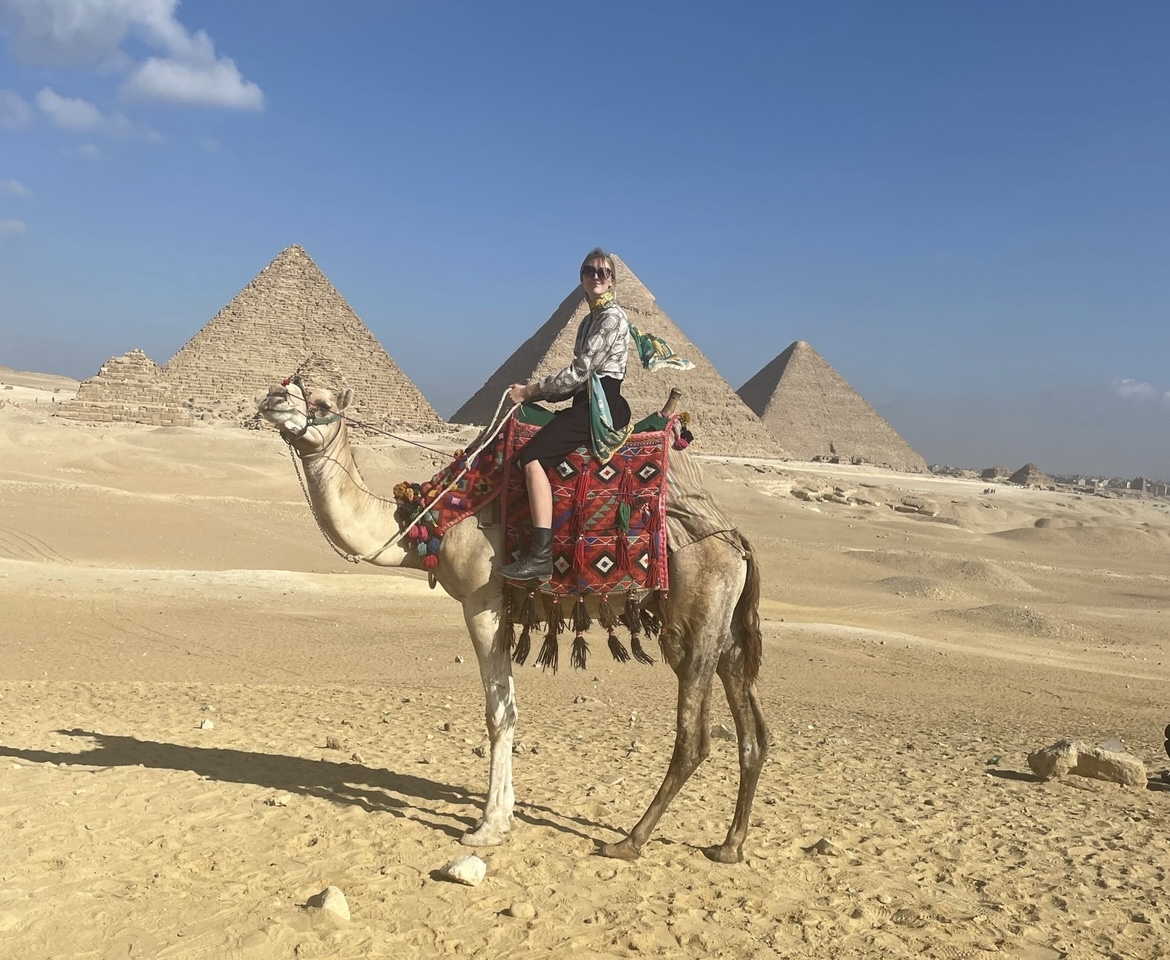
Women Travelers
Traveling as a woman in Egypt is absolutely possible — many women do it and have rich, fulfilling experiences. That said, it requires a few adjustments, especially around dress, street behavior, and personal boundaries.
What to Expect:
- Street Harassment: Unfortunately, catcalling and staring are common. Most of it is verbal and harmless, but it can feel exhausting. Sunglasses and headphones help create distance.
- Modesty Matters: Covering shoulders, cleavage, and knees is culturally respectful and helps reduce unwanted attention. A scarf is handy for mosque visits and public transit.
- Friendliness vs. Flirting: Egyptian hospitality is real, but so is boundary-pushing. If someone seems too eager to help, trust your gut. A firm tone and “La, shukran” usually ends it.
Safety Tips:
- Use women-only cars on the Cairo metro.
- Walk with confidence; avoid isolated alleys at night.
- Join women’s travel groups or tours for community.
- Consider women-run stays, like guesthouses in Luxor or Dahab.
Empowering Resources:
- @shetravelsmiddleeast (Instagram)
- Women Who Travel podcast (Egypt episodes)
Egypt is challenging at times, but it can also be deeply empowering. Many women leave feeling stronger and more connected to the world.
Accessibility & Mobility
Egypt is not yet a fully accessible destination — but it’s improving slowly, and with the right planning, travelers with disabilities or mobility challenges can experience its highlights.
Challenges:
- Historic Sites: Most ancient temples, pyramids, and ruins were built long before accessibility was considered. Expect uneven ground, stairs, and minimal ramps.
- Sidewalks & Streets: Urban areas often lack curb cuts and smooth pavement. Sidewalks may be blocked or broken.
- Transportation: Public buses and trains are generally not wheelchair-friendly. However, private vans or adapted tours can be arranged.
Tips:
- Book with tour companies specializing in accessibility (some in Luxor and Cairo offer tailored itineraries).
- Contact hotels ahead of time to confirm room accessibility.
- Bring any necessary equipment — local supply can be limited.
Even in its limitations, many travelers report that locals go out of their way to help. With patience and planning, Egypt is possible.
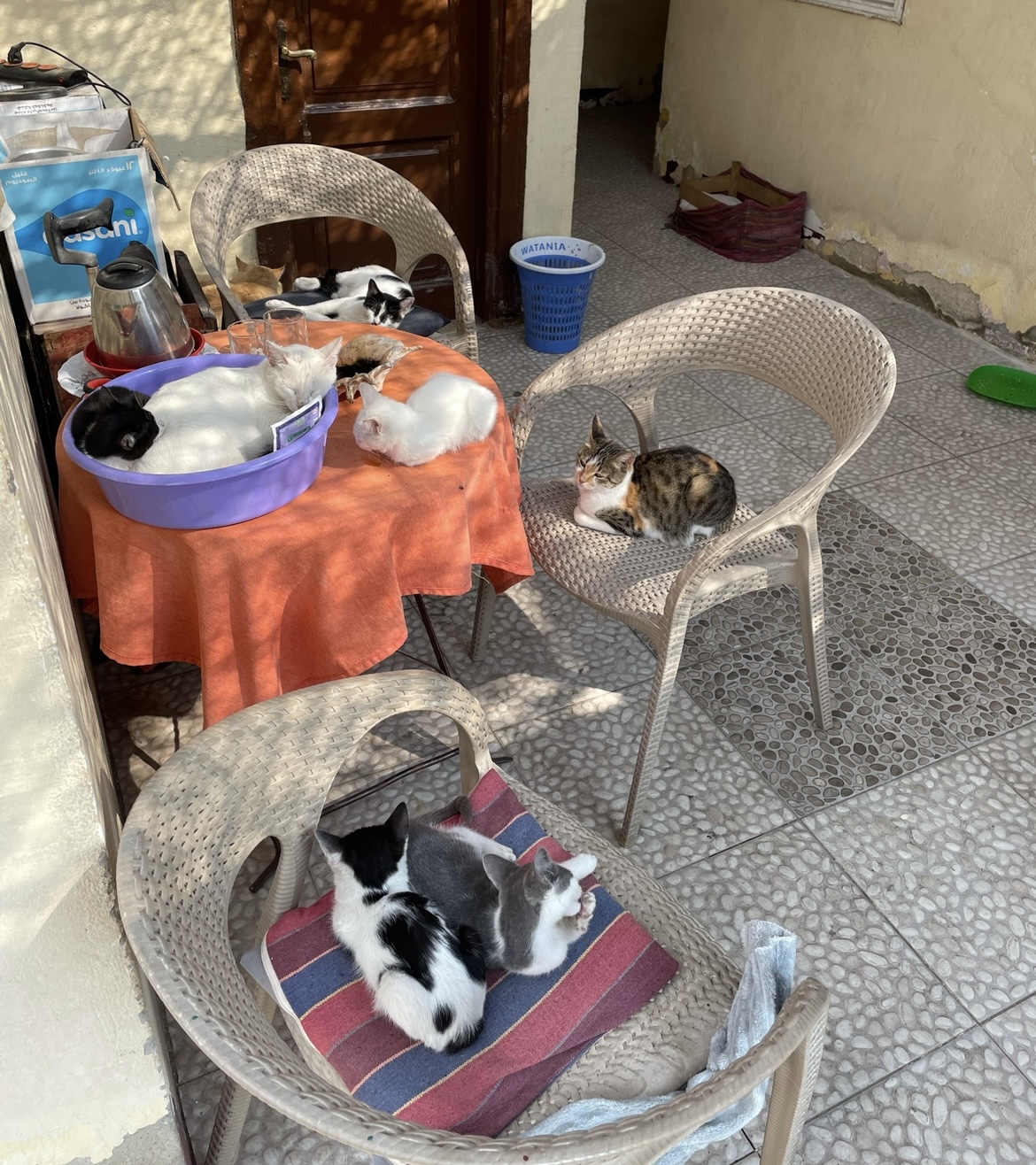
Cats galore!
Festivals & Holidays
Egypt’s festivals are a fascinating mix of Islamic, Coptic Christian, and pharaonic-era traditions — celebrated with food, music, family, and vibrant public life. Whether you’re hoping to experience the magic or avoid logistical disruptions, here’s what you need to know:
🗓 Note: Islamic holidays follow the lunar calendar, so dates shift ~11 days earlier each year. Public holiday closures may affect banks, government offices, and some tourist services.
🕋 Ramadan
📅 March 1 – March 30, 2025 (approx.)
Ramadan is the holiest month for Muslims, a time of fasting from sunrise to sunset, prayer, reflection, and community.
- Travel Tips: Many locals fast, so be respectful — avoid eating/drinking in public during daylight in non-touristy areas.
- Most restaurants in major cities remain open for tourists.
- After sunset (iftar), streets come alive with lanterns, food, and joy.
- Traffic can spike just before iftar.
🌙 Eid al-Fitr (Festival of Breaking the Fast)
📅 March 31 – April 2, 2025 (approx.)
A joyful 3-day celebration marking the end of Ramadan. Families gather, give gifts, and wear new clothes.
- Expect large crowds, limited transport, and some closures.
- A great time to witness Egypt’s festive spirit if you’re staying locally.
🐑 Eid al-Adha (Festival of Sacrifice)
📅 June 6 – June 9, 2025 (approx.)
Commemorating Abraham’s willingness to sacrifice his son, this holiday involves prayers and animal sacrifices, with meat distributed to the poor.
- It’s a time of family feasts and public celebration.
- Travel, especially by train or bus, may be heavily booked around this period.
🌼 Sham El-Nessim (Ancient Spring Festival)
📅 April 21, 2025
Dating back to pharaonic times, this holiday now aligns with Coptic Easter Monday and celebrates spring with picnics, flowers, and salted fish.
- Parks and public spaces overflow with families enjoying the outdoors.
- Try fesikh (fermented fish) if you’re adventurous — but only from trusted vendors!
✝️ Coptic Christian Holidays
Coptic Christmas
📅 January 7, 2025
Celebrated by Egypt’s Coptic Orthodox Christians with midnight mass, family meals, and community spirit. In Cairo, you’ll see lights and trees — especially in Coptic neighborhoods like Shubra or Old Cairo.
Coptic Easter
📅 April 20, 2025
Marks the resurrection of Christ. Services and family gatherings take place across the country.
- Next day (April 21) is Sham El-Nessim, celebrated by both Muslims and Christians.
🎠 Moulids (Saints’ Days & Sufi Festivals)
📍 Various locations & dates throughout the year
Moulids are local festivals honoring saints, especially in Islamic Cairo, Luxor, and Upper Egypt. These blend spiritual rituals with street carnivals — think chanting, whirling dervishes, incense, and sweets.
- Popular moulids include Sayyidna Hussein (Cairo) and Abu al-Haggag (Luxor).
- Ask locals for dates — they vary by the Islamic lunar calendar.
🎆 Other Public Holidays (2025)
| Holiday | Date |
| New Year’s Day | January 1 |
| Sinai Liberation Day | April 25 |
| Labor Day | May 1 |
| Revolution Day (1952) | July 23 |
| Armed Forces Day | October 6 |
These holidays may include military parades, patriotic songs, and light closures in cities. Travel disruptions are usually minimal.

Eco Travel Tips
Egypt’s beauty is fragile, from the coral reefs of the Red Sea to the sandstone tombs of the south. Tourism can either help protect or contribute to its destruction. Here’s how to tread lightly:
♻️ Reduce Your Footprint:
- Avoid Single-Use Plastic: Bring a reusable water bottle (and filter if needed), tote bag, and utensils.
- Say No to Plastic Bags & Straws: Many small shops still use them by default — politely decline.
- Use Reef-Safe Sunscreen: Especially around the Red Sea. Chemical sunscreens damage corals.
🐠 Respect Nature:
- Don’t touch or step on coral reefs. Ever.
- Don’t ride camels or horses that look mistreated or malnourished.
- Choose ethical dive operators that don’t feed or chase marine life.
🛏️ Stay Sustainably:
- Pick eco-lodges or family-run guesthouses over large international chains.
- In places like Siwa or Dahab, support businesses that use local materials and minimize energy use.
✨ Travel Slow & Local:
- Walk, bike, or use shared transport where possible.
- Eat at locally-owned restaurants. Skip the chains.
Eco-travel here is about preserving Egypt’s magic, not just seeing it.
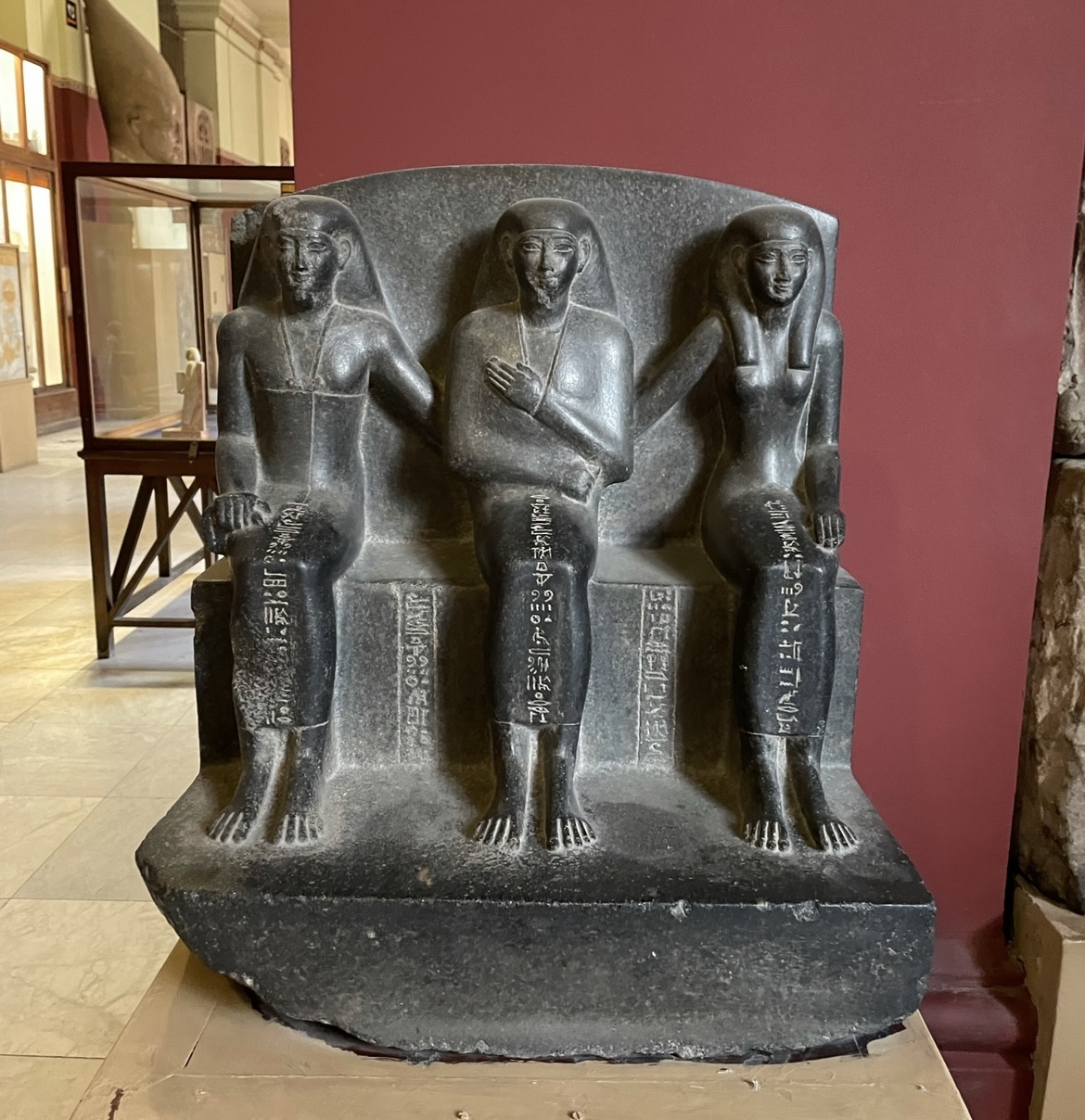
Learn Before You Go
📚 Books
- Egypt: The Moment of Change – Edited by Rabab El-Mahdi & Philip Marfleet
A collection of essays analyzing the political and social changes in Egypt post-Mubarak with a focus on grassroots movements and the failure of imperial-backed neoliberalism. - Colonialism and Revolution in the Middle East: Social and Cultural Origins of Egypt’s ‘Urabi Movement – Juan Cole
A deeply researched account of the 1879–1882 nationalist revolt against British and Ottoman control, led by Ahmad Urabi — a peasant-born army officer. Essential for understanding anti-colonial resistance before the formal British occupation. - The Modern Middle East: A History – James L. Gelvin
While regional in focus, this book critiques European imperialism in the Arab world, including Egypt’s subjugation through the Suez Canal and British colonial administration. - Decolonizing Egypt: Culture, Power, and the Archive – Elliott Colla
A scholarly but accessible look at how Egypt tried to reclaim its narrative and identity through culture, literature, and law during and after colonialism. - The Loom of Youth: Nasser and the Making of Modern Egypt – Joel Gordon
Offers a critical perspective on Gamal Abdel Nasser’s anti-imperial legacy, pan-Arabism, and how his regime sought to throw off colonial structures — while also contending with internal authoritarian tendencies.
🎧 Podcasts & Audio Series
The Fire These Times – (episodes on Egypt and Arab revolutions)
Covers radical and anti-colonial politics across the Middle East, including Egyptian uprisings, exile, and resistance.
Al Jazeera’s “The Take” – Occasional deep dives into Egypt’s political resistance, Arab Spring, and post-colonial struggles.
Revolutionary Despair – A limited series about the hopes and betrayals of the 2011 Egyptian Revolution.
🎥 Documentaries & Films
- The Square (Netflix)
A raw and emotional look at the Egyptian Revolution from Tahrir Square, showing both the hope and the brutal state repression that followed.
- Nasser 56 (Arabic, with subtitles)
A dramatization of Nasser’s nationalization of the Suez Canal — a powerful anti-imperial act that defied British, French, and Israeli aggression. - The Trials of Spring
Focuses on women’s roles in Egypt’s revolution and the state’s violent crackdown on dissent.
📰 Articles & Essays
- “The British Occupation of Egypt” – Edward Said’s writings touch on Egypt’s colonial status and cultural imperialism, especially in Culture and Imperialism.
- Middle East Research and Information Project (MERIP.org)
A great source of radical, anti-imperialist analysis on Egypt, from economic reforms under the IMF to post-2013 authoritarianism.
- “Why Was Egypt Colonized?” – Open Democracy
Explores the strategic and capitalist interests that drove Britain and France into Egypt, with a critique of modern neocolonial interventions.
Conclusion
Egypt is more than a destination—it’s an experience of timeless wonder, cultural richness, and deeply rooted spirituality. With a mindful approach to travel that respects the local culture, people, and environment, your journey through Egypt can be as meaningful as it is memorable. Let this guide be your compass as you prepare to walk through history, cruise down the Nile, and discover the stories etched into the sands of time.

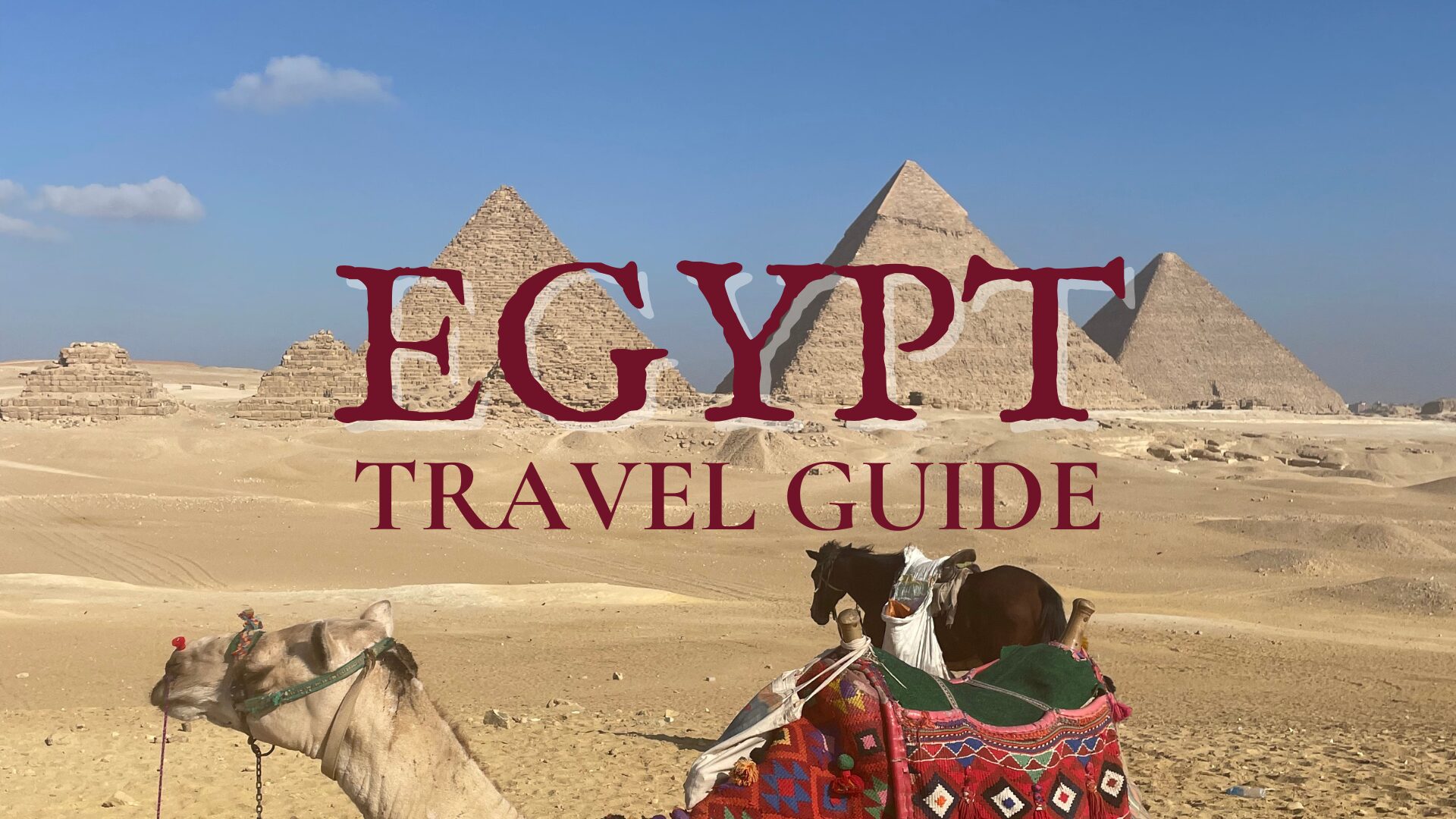

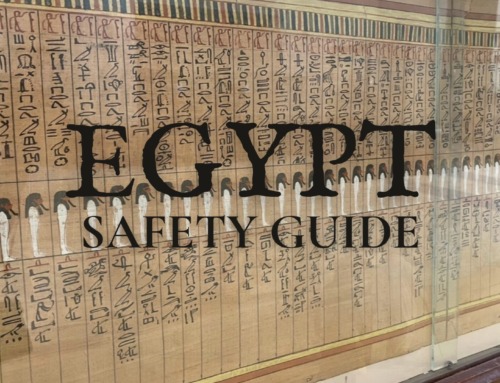
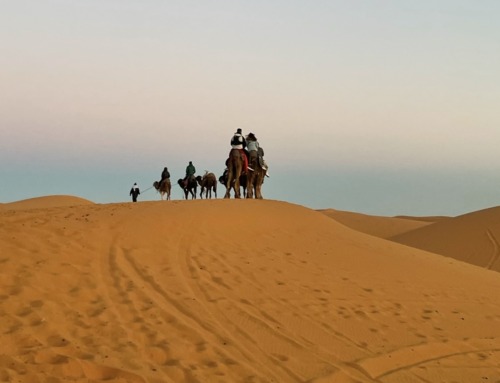
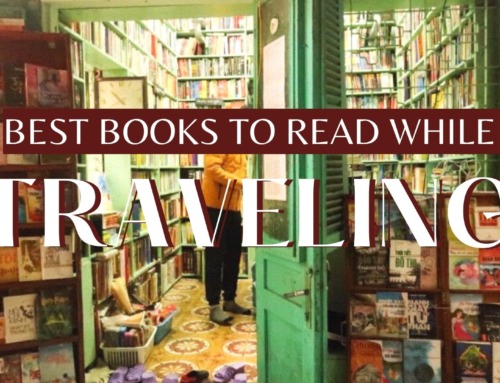
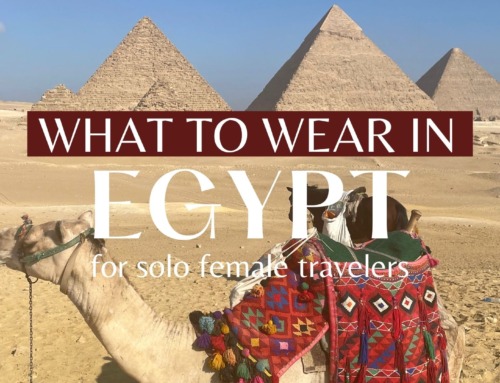
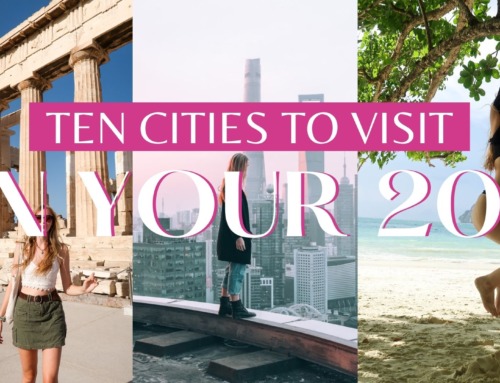
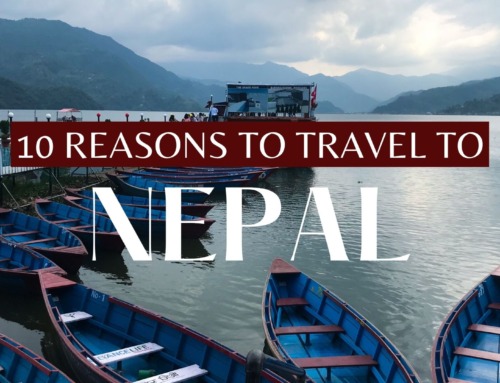
Leave A Comment